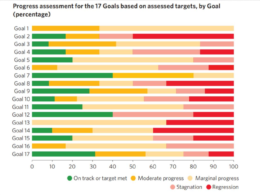European cities are failing to address air and noise pollution effectively, posing significant health risks to residents, according to a report by the European Court of Auditors (ECA). Air pollution from particulate matter (PM2.5), nitrogen dioxide (NO2), and ozone contribute to over 250,000 premature deaths annually in the EU, while noise pollution causes 12,000 early deaths and thousands of cases of heart disease.
The ECA report highlights transport and domestic heating as the primary sources of urban pollution. Despite improvements in air quality, the current pace of progress is insufficient to meet the EU’s ambitious 2030 targets.
Air pollution remains a severe public health issue in Europe, with NO2 emissions primarily from transport causing 49,000 deaths in 2020 alone. Concentrations of NO2 above WHO guidelines are particularly high in cities like Athens, Kraków, and Barcelona, where transport pollution is rampant.
The most lethal pollutant, PM2.5, accounted for 253,000 deaths in 2021. This fine particulate matter largely originates from domestic heating systems using solid fuels such as coal and wood. Transitioning to cleaner heating solutions, such as electric heat pumps, could significantly reduce PM2.5 emissions, the report suggests. However, some alternatives, like switching to natural gas, could inadvertently increase CO2 emissions.
Noise pollution, predominantly from road traffic, is the second-largest environmental contributor to disease in the EU after air pollution. The EU’s target to reduce transport noise impacts by 30% by 2030 is unlikely to be met, with projections showing a best-case reduction of just 19%.
The ECA has urged the European Commission to introduce stricter noise reduction targets under the Environmental Noise Directive and align thresholds with WHO recommendations. Klaus-Heiner Lehne, an ECA member, emphasised the urgency: “Protecting public health is a key responsibility of policymakers.”
The report criticises delays in implementing EU air and noise pollution regulations, noting that environmental law violations account for the largest number of infringement cases in the EU. Some cases have remained unresolved for over a decade, raising concerns about the effectiveness of enforcement mechanisms.
Low-emission zones, which restrict polluting vehicles in certain areas, have proven effective but politically sensitive. Cities like London have faced backlash, with incidents of vandalism targeting Ultra Low Emission Zone (ULEZ) cameras. In Spain, some cities have refused to implement the measures altogether.
To address these challenges, the ECA recommends more flexible planning and improved public engagement to ensure compliance and acceptance of pollution control measures.
The ECA report underscores the urgent need for targeted actions to tackle urban air and noise pollution. Measures include prioritising the reduction of NO2 emissions from transport, transitioning to cleaner heating systems, and enforcing stricter regulations. Without significant changes, the EU risks failing to meet its 2030 environmental goals, leaving millions exposed to the harmful effects of pollution.





















